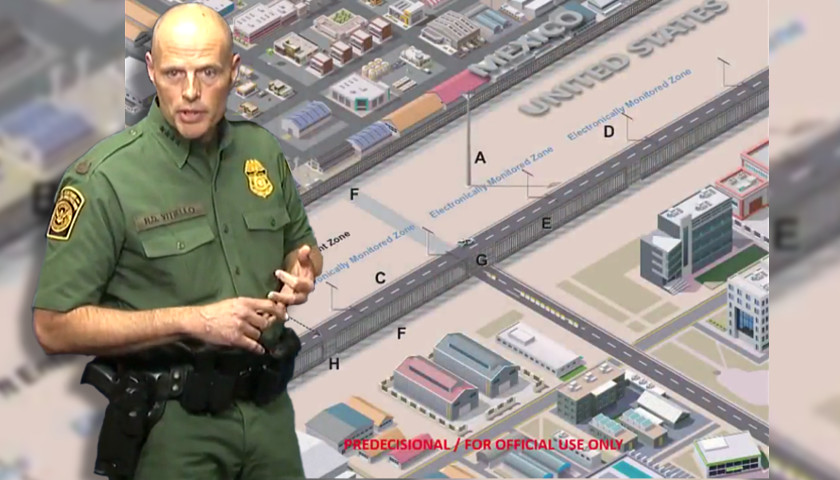The U.S. Department of Homeland Security said Tuesday that it would waive environmental laws so it could build gates between sections of border barriers in South Texas’ Rio Grande Valley.
The waiver posted online lists 11 locations where the government plans to install gates in existing fencing. DHS has in recent months issued similar waivers of environmental laws for projects elsewhere on the southwest border.
The U.S. government already has around 700 miles (1,126 kilometers) of fencing on the southwest border. In far South Texas, segments of fencing stop and start along the levee built next to the Rio Grande, the river separating the U.S. and Mexico. Many parts of the fencing are built a significant distance from the river, in some cases bisecting private property.
The proposed gates would seal some of those gaps in Cameron County. U.S. Customs and Border Protection typically grants affected residents access to the gates so they can get to the other side of their land.
The government also separately plans to begin building new barriers to fulfill President Donald Trump’s signature campaign pledge to build a border wall. Congress earlier this year approved $1.6 billion for new border wall spending, which included funding for 33 miles (53 kilometers) of construction in the Rio Grande Valley.
Some of the planned construction would cut through the National Butterfly Center and other environmentally sensitive areas. It may also leave some border town residents on the so-called “Mexican side,” still on American land but cut off by a wall.
The valley is the busiest corridor for illegal border crossings, and U.S. government officials say it is targeted by human and drug traffickers.
In the waiver, DHS Secretary Kirstjen Nielsen writes that there is “an acute and immediate need to construct physical barriers and roads” along the border. Nielsen waived regulations under the Endangered Species Act, the Clean Water Act, and about two dozen other laws.
The waiver “continues to chip away at crucial protections for people and wildlife in the Rio Grande Valley,” said Laiken Jordahl of the Center for Biological Diversity. “They deserve clean air, clean water and the same legal rights as everyone else in the country.”
A former CBP official said in March that the agency wanted to start installing the gates in October. CBP declined Tuesday to confirm that is still the agency’s plan.




